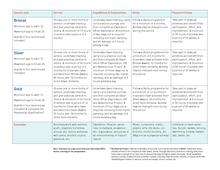The Duke of Edinburgh's International Award - Canada
 The Duke of Edinburgh's International Award Logo
thumbnail | |
| Founded | 1963 |
|---|---|
| Founder | HRH Prince Philip, Duke of Edinburgh K.G., K.T. |
| Type | National Award Authority |
| Focus | Inspire and promote lifelong improvement for all young Canadians by encouraging personal development and achievement. |
| Location | |
| Origins | Duke of Edinburgh's Award |
Area served | Across Canada in all provinces and territories and in 143 countries worldwide. |
Members | 44,824 |
Key people | Rick Ashbee, National Executive Director |
Employees | 50 |
Volunteers | 3,936 |
| Slogan | Equipping young people for life |
| Mission | Give Canadians aged 14-24 a supportive, non-competitive platform that deepens awareness, builds confidence and broadens skills and experience to further their development as active responsible citizens. |
| Website | www.dukeofed.org |
Formerly called | The Duke of Edinburgh's Award - Canada |
The Duke of Edinburgh's International Award, also referred to as 'The Award' or 'The Duke of Ed', is a self-development program available to young people ages 14 to 24. To date, over 500,000 young people from Canada, and over 8 million youth in 143 countries, have been motivated to undertake a variety of voluntary and challenging activities.
Concept
The purpose of The Duke of Edinburgh's International Award is to encourage young people to set their own goals and challenges, work towards achieving them, and then be recognized at the end for sustaining the commitment they have made. There is no competition between participants. The only people with whom they compete are themselves. Self-motivation is fundamental to the Programme. There are no set standards to achieve. The criteria for gaining an Award is based on each participant's individual improvement and potential at the starting point of the Award. There is no such thing as failure in the Award. Even if an Award is not attained, just being involved brings new friends, new knowledge and new adventures. The Award programme has three levels: Bronze, Silver and Gold. Each requires an increasing level of commitment and effort.
- Bronze: Open to those 14 years or older. The minimum period of participation to achieve this Award is 6 months.
- Silver: Open to those 15 years or older. The minimum period of participation to achieve this Award is 12 months.
- Gold: Open to those 16 years or older. The minimum period of participation to achieve this Award is 18 months.
The Award Programme is designed to encourage youth to set and achieve goals. It is a journey of self-development, self-training, and personal achievement, and is based upon individual effort and improvement. To achieve an Award, participants must set goals in all 4 programme areas (5 when achieving the Gold level):
- Service: This section is intended to develop a sense of responsibility to yourself and to your community.
- Adventurous Journey: Aims to cultivate a spirit of adventure, discovery and an understanding of the environment while undertaking a wilderness or adventure experience.
- Skills: Encourages the development of personal interests and social or practical skills.
- Physical Recreation: Encourages a sense of achievement and good health through regular physical activities.
- The Residential Project:(additional requirement at the Gold level) Aims to broaden horizons, experiences and outlook through living and working with others.

Time frame
To complete the Bronze Award it will take the participant a minimum of 6 months.
To complete the Silver Award it will take the participant a minimum of 6 months if they previously achieved the Bronze Award. If not, it take 12 months to complete as a direct entry to Silver.
To complete the Gold Award it will take the participant a minimum of 12 months if they previously achieved the Silver Award. If not, it will take 18 months to complete as a direct entry to Gold.
Each participant has until their 25th birthday to complete all activities needed to achieve The Award.
History
In 1963 The Award was launched in Canada and opened up to all young Canadians between the ages of 14 to 25. Pilot projects were launched in various cities in Nova Scotia, Ontario and British Columbia. In 1964 one of the first Award Ceremonies was held, with 48 Bronze and 6 Silver Awards presented to participants.
In 1966, the first Gold Award Ceremony was held in Ottawa. His Royal Highness, The Prince Philip presented 18 recipients with their Gold Awards. By the early 1980s the Award was operating in Quebec, Manitoba, Alberta, Saskatchewan, Newfoundland, Prince Edward Island, the Yukon and Northwest Territories.
Once launched within the 10 provinces and 2 territories, the Award programme began to find roots in Canadian soil and by 1986, British Columbia, the Yukon and Quebec had been recorded as having the highest levels of participation.
There are currently over 37,000 young Canadians participating in the Award. There are approximately 5 million young people in Canada between the 14 to 25 age group. Nationally the programme has developed a number of initiatives to expand the Award so it becomes more accessible to "at-risk" youth, inner-city youth, young offenders, youth with disabilities, as well as northern and aboriginal youth.
The Award in Canada is associated with The Duke of Edinburgh's International Foundation. In 1967 Canada hosted the first International Gold Event which brought Gold Award achievers from around the world to Canada. In 1988 Canada became a founding member of The Duke of Edinburgh’s Award International Association and is currently one of the four largest National Award Authorities. In 2002, Canada hosted its second International Gold Event – Rendezvous 2002.
See also
- The Duke of Edinburgh's Award
- Gaisce – The President's Award
- Hong Kong Award for Young People
- International Award Association
- Israel youth award
External links
References
"The Founder, About the Duke of Edinburgh".